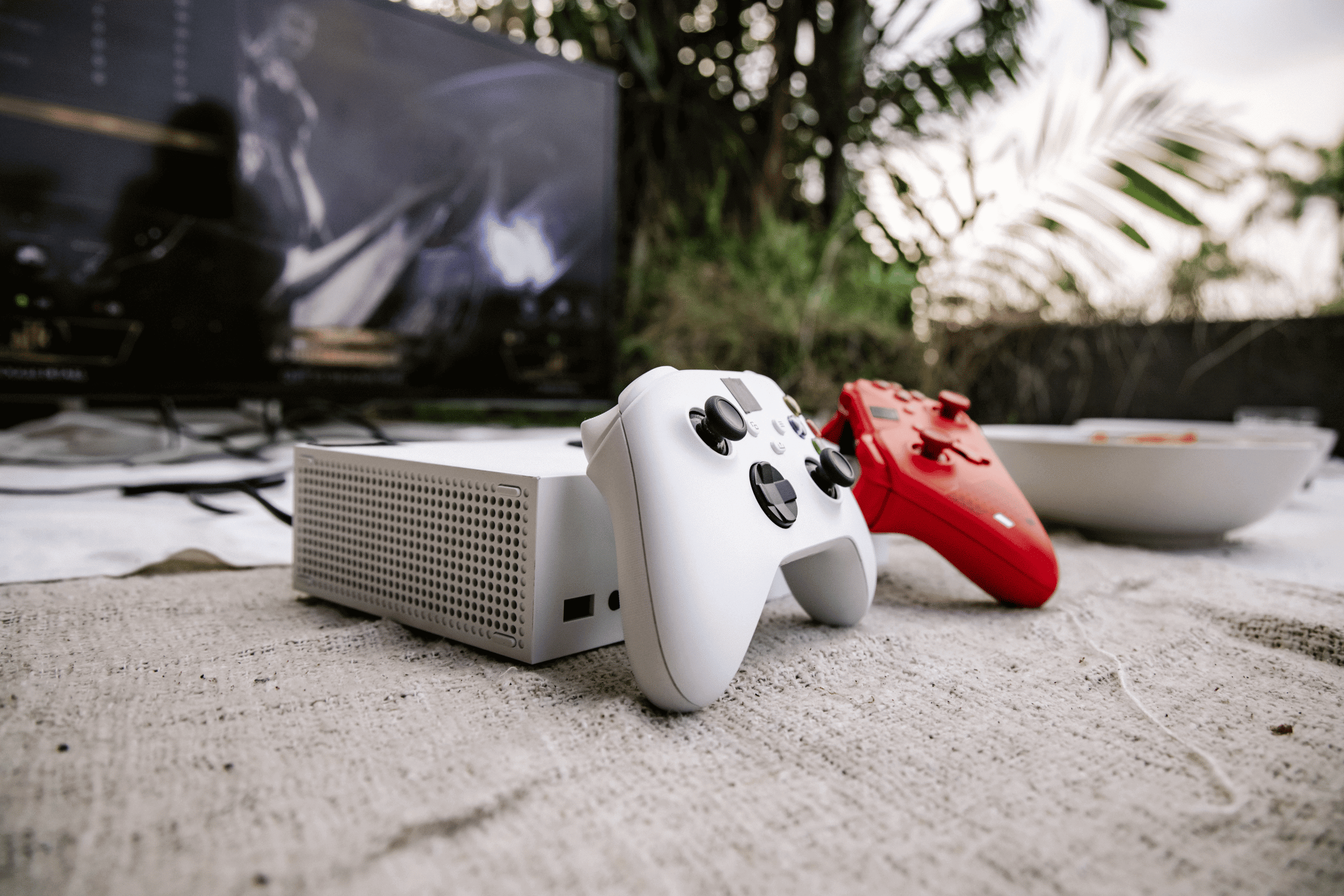
Game console buying guide: 10 things to consider
The game console market is saturated, and with so many options available, choosing the right console for your needs can be challenging. That’s why we’ve put together this game console buying guide to help you find the best. These ten factors are crucial for an enhanced gaming experience, whether for casual or hardcore gaming.
1. Price
Price is crucial when buying a game console. Game consoles range in price from budget options to premium systems. Most often, the cost of the console has a direct effect on your gaming experience. So, it’s best to determine your budget before buying a console. Here are some of the approximate price ranges of various types of game consoles currently available:
Handheld consoles:
- Nintendo Switch Lite: $200 to $230
- Sony PlayStation Vita: $150 to $200 (discontinued, but still available in the used market)
Home consoles:
- Microsoft Xbox Series X/S: $500 to $700
- Sony PlayStation 5: $500 to $700
- Nintendo Switch: $300 to $400
- Microsoft Xbox One X/S: $200 to $500 (discontinued, but still available in the used market)
- Sony PlayStation 4/Pro: $200 to $400 (suspended, but still available in the used market)
These prices may vary depending on region and availability. Consider shopping around for sales and discounts. Also, refurbished or pre-owned options help for a more cost-effective solution. The prices of games, subscriptions, and accessories will add to the cost of owning a console. Choose the console that fits your individual needs and budget.
2. Hardware specifications
They include processor speed, graphics, RAM, connectivity, and storage capacity. They are essential when choosing a game console. For example, to get the best gaming experience while playing FIFA 2023, it’s necessary to have a game console with enough RAM of at least 8GB.
Purchasing a console with good hardware specifications improves your gaming experience significantly. It allows the game to run smoothly without lag or stuttering, reduces loading times, and provides a seamless in-game experience. Additionally, you can multitask without slowing down the system, making switching between different applications or games easier.
Here’s a comparison of the PlayStation 5 and Xbox Series X/S hardware released in 2020.
| Feature | PlayStation 5 | Xbox Series X/S |
|---|---|---|
| CPU | Custom AMD Zen 2 CPU with eight cores at 3.5 GHz | Custom AMD Zen 2 CPU with eight cores at 3.8 GHz |
| GPU | Custom AMD RDNA 2 GPU with 36 compute units at 2.23 GHz | Custom AMD RDNA 2 GPU with 52 compute units at 1.82 GHz |
| Memory | 16 GB GDDR6 | 10 GB GDDR6 (Xbox Series S), 16 GB GDDR6 (Xbox Series X) |
| Storage | Custom 825 GB SSD | Custom 512 GB SSD (Xbox Series S), Custom 1 TB SSD (Xbox Series X) |
| Expandable Storage | NVMe SSD Slot | 1 TB Expansion Card |
| Optical Drive | Ultra HD Blu-ray (PS5), Digital Edition available | Ultra HD Blu-ray (Xbox Series X), Digital Edition available (Xbox Series S) |
| Resolution | Up to 4K at 120Hz, 8K support | Up to 4K at 120Hz, 8K support |
| Controller | DualSense Wireless Controller | Xbox Wireless Controller |
Pro tip:
The Xbox Series X/S has a slightly faster CPU and more compute units in the GPU, while the PlayStation 5 has more memory and a larger SSD. Both consoles support ray tracing, backward compatibility, and online services but have different subscription and controller designs.
3. Exclusive games
You can only play exclusive games on some specific consoles and not on other platforms. Consider the exclusive games on each console to ensure they align with your gaming preferences.
Examples of exclusive games that you can only play on a particular console are:
- PlayStation: God of War, The Last of Us Part II, Spider-Man: Miles Morales, Horizon Zero Dawn, Ghost of Tsushima.
- Xbox: Halo Infinite, Forza Horizon 5, Gears 5, Fable, Hellblade II: Senua’s Saga.
- Nintendo Switch: The Legend of Zelda: Breath of the Wild, Super Mario Odyssey, Animal Crossing: New Horizons, Fire Emblem: Three Houses, Splatoon 2.
Exclusive games are usually purposed to drive the popularity of a console. They are often used to differentiate one platform from another.
4. Online services
Different console offers different online services with varying features and costs. Even popular gaming consoles, like the PlayStation+ and Xbox Live, have online services. These services either come with monthly premiums or are free of charge. As of May 2023, the Xbox Series includes four gaming pass plans. All of which come with various distinguishing features over the other:
- Xbox Game Pass for Console at $9.99 per month.
- Xbox Game Pass Ultimate at $14.99 per month.
- Xbox Game Pass for PC at $9.99 per month.
- Xbox Game Pass for PC (Beta) at $4.99 per month.*
- Xbox Live Gold at $9.99 per month.
The PlayStation console includes the following:
- PlayStation Plus Essential
- 1-Month Membership at $9.99.
- 3-Month Membership at $24.99.
- 12-Month Membership at $59.99.
- PlayStation Plus Premium
- 1-Month Membership at $14.99.
- 3-Month Membership at $39.99.
- 12-Month Membership at $99.99.
- PlayStation Plus Extra
- 1-Month Membership at $17.99.
- 3-Month Membership at $49.99.
- 12-Month Membership at $199.99.
The benefits include online multiplayer gaming, free games, and entertainment options. It’s best to compare the features and prices of each console’s online service. It will help to determine which one fits your individual needs. It will also help to ensure that you consider the essential features.
5. Design and build quality
It is essential to examine the console’s build material, look, and layout. An appealing and well-built console will significantly complement your game setup and improve your experience. For example, both Xbox and PlayStation consoles offer good design and build quality, with Xbox consoles having a sleek and modern look and a premium feel due to their use of metal and other high-end materials.
In contrast, PlayStation consoles have a more distinctive rounded design and use plastic materials. Xbox consoles are known for their durability, while PlayStation consoles are more prone to scratches and other cosmetic damage. The choice between the two will depend on personal preference and should be complemented by the specific features and hardware specifications you desire in your game console.
6. Brand reputation
Determining the quality and customer support you can get from your game console brand is also crucial. Most brands offer 24/7 customer service and have extensive communities on Discord and Reddit to help you with all your troubleshooting needs when gaming.
7. Backward compatibility
Backward compatibility is the ability of a game console to play games from previous generations. This is important to expand the game catalog available to the console of your choice.
Check if the console is wholly or partly backward compatible with previous-generation games. Also, consider your library when deciding. Remember, both present and future game releases become obsolete after a while. Thus, having a console with backward compatibility with old releases can be crucial.
8. Gaming preferences
Different consoles offer different games. They range from fast-paced action games to strategy games. First, determine your gaming preferences, such as the type of games you enjoy playing.
Then, choose a console that offers a variety of games in your preferred genre. Consider the exclusives each console provides and the type of multiplayer options available. Make sure the console you choose aligns with your gaming preferences.
9. Virtual Reality
Virtual reality is a growing trend in the gaming industry. It is an essential factor to consider when buying a game console. Some consoles offer virtual reality support, allowing players to experience games in an immersive, 360-degree environment.
Consider your interest in virtual reality gaming and the available virtual reality options. When deciding, remember that virtual reality gaming often requires extra equipment. An example is a virtual reality headset.
10. Accessory compatibility
Accessories, such as controllers, may be unique to a particular console. They may also be incompatible with others. Choose gaming consoles with comfortable stock controllers compatible with most accessories. These may include extra controllers, gaming headsets, and any device that enhances your gaming experience.
FAQs
Wrapping up
Buying a game console is a significant investment. Consider these crucial tips before purchasing to save yourself time and money. We recommend extensive research and comparison of your console choice to determine if it fits your needs. You will make an informed decision this way.
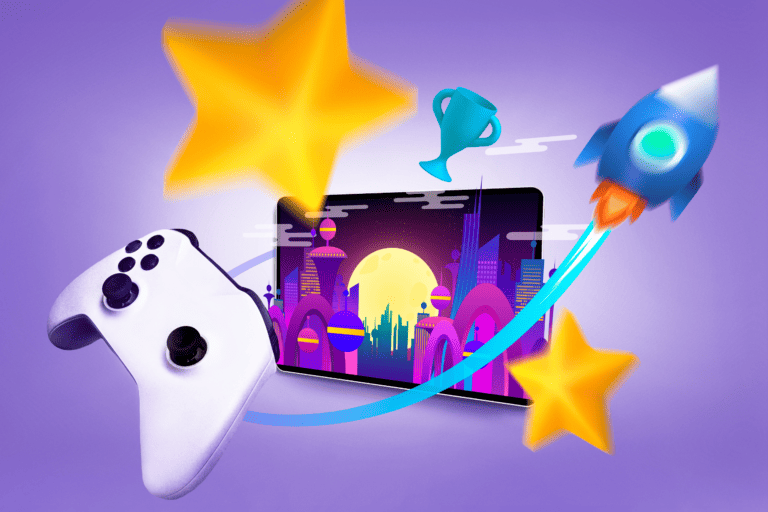
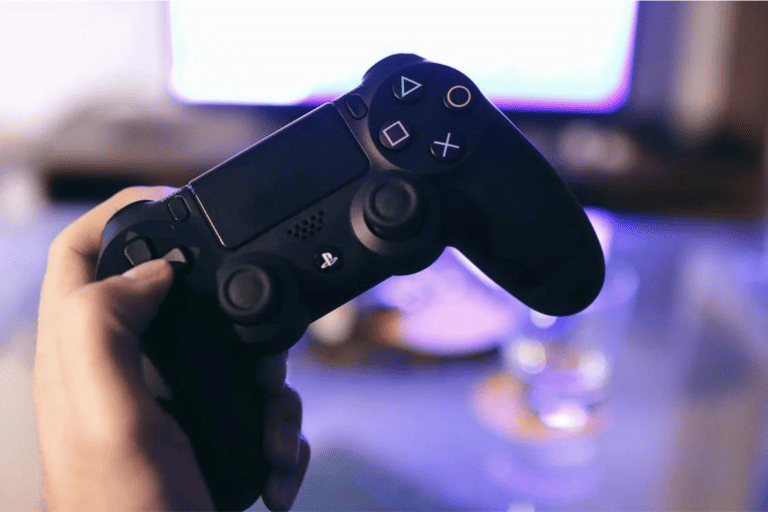
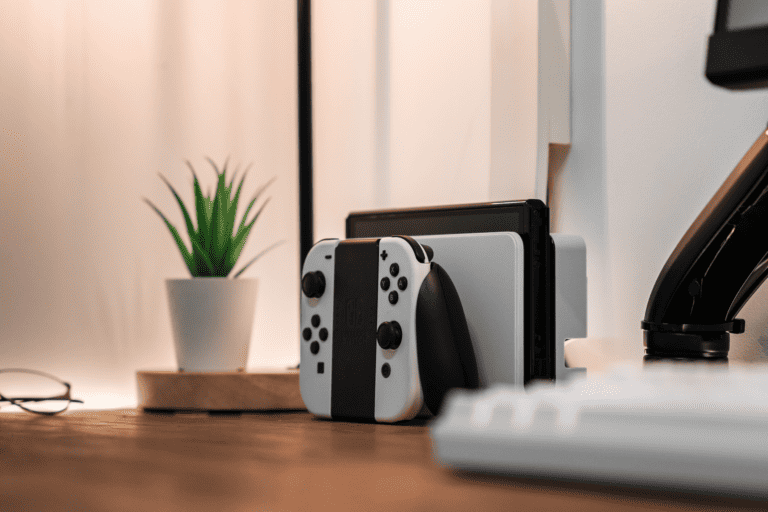
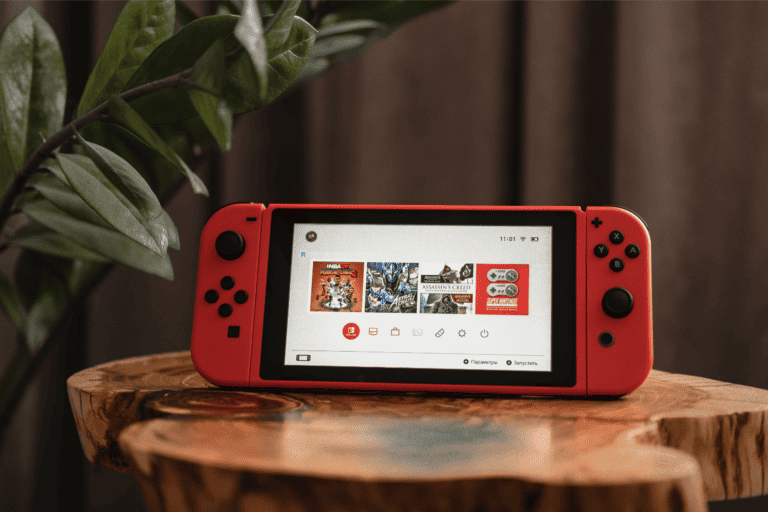
Leave a Comment